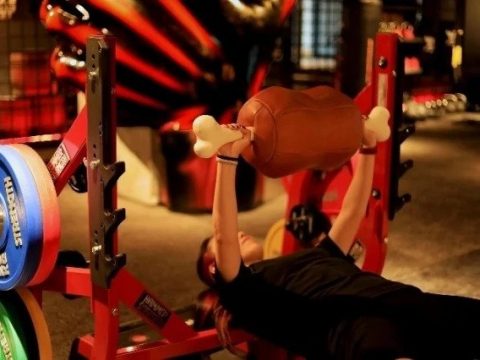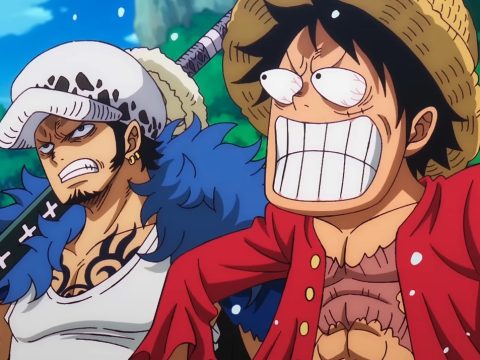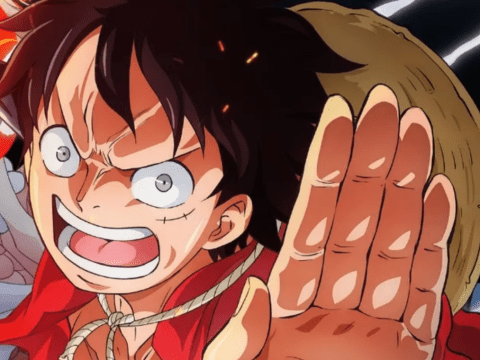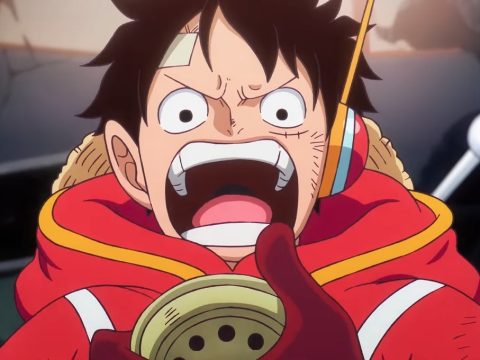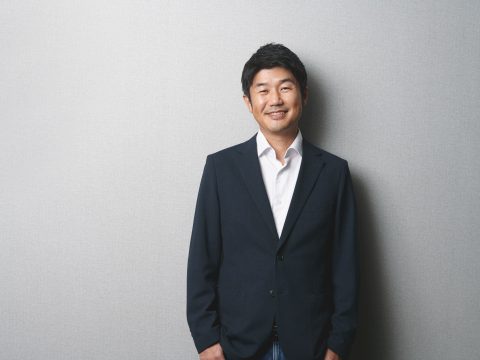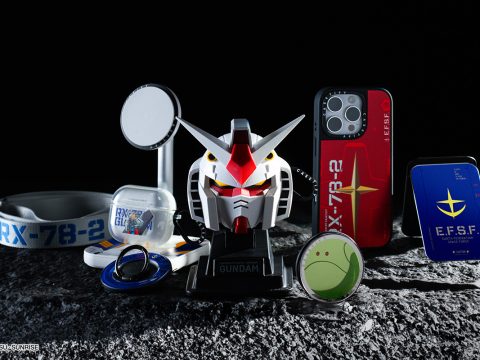A workhorse of the Japanese voice acting field, Toshio Furukawa made a name for himself playing a variety of heroes and villains in some of the Bubble era’s defining shows: Kai Shiden in Mobile Suit Gundam, Ataru in Urusei Yatsura, Piccolo in Dragon Ball, and Shin in Fist of the North Star, to name just a few.
More recent fans will likely recognize him as the voice of Portgas D. Ace in One Piece, but Furukawa’s career spans everything from commercial work to dubs of western films and TV shows (he was the voice of Bill Pullman’s president in Independence Day) to video games and more. We sat down with him to ask him about his early years, greatest challenges and his dub work on 70s cop show CHiPS.
Otaku USA: You got your start as an actor at a young age, after your brother sent you a pamphlet with information about an acting troupe in Tokyo. What was that initial experience like for you?
Furukawa: I’m one of 15 children, so I have a lot of brothers and sisters — I was the last one. My parents, brothers and sisters basically wanted me to do whatever I wanted to do. My brother, who was in Tokyo at the time, knew that I enjoyed performing in front of others and thought acting would be a good match for me. He went to my parents with the idea, who didn’t like the idea at all. I’m the youngest child, and my parents felt like they wouldn’t have as much time with me if I ended up being swept away to act in Tokyo. But I’d set my mind on doing it, and I cried for 3 days straight in an attempt to convince them.
Mom went to Dad and suggested that maybe he should consider the possibility, and a few days later he came to me and asked if I really wanted to do it. I of course said yes, and that’s what convinced him to let me do it. He may have been strict with me, but my mom had what it took to get him to change his mind. I suppose that may be true with most families in general… But really, I think my mom knew I was pretty stubborn and wouldn’t change my mind once I made a decision.
OUSA: Was there a specific reason your father didn’t want you to go into acting?
Furukawa: I remember very specifically that my father wanted me to become either a banker or a police officer, and he wanted me to live close by to the rest of the family. As a child I remember thinking that I’d definitely be rich if I became a banker, and if I became a police officer, well… I grew up in a rural area, so police officers had a lot of power. That was the line of thinking in my family at the time.
OUSA: Speaking of police officers, you had the chance to dub main character Frank “Ponch” Poncherello in the Japanese version of the popular American 1970s cop show CHiPS, which you’ve cited as a major turning point in your career. Why was that, and what was it like working on that show in particular?
Furukawa: You know, it’s funny you mention that, because I’ve ended up doing a lot of police characters over the years. Asuma in Patlabor, Misao Yamamura in Detective Conan, Leon in AD Police, Tarou Soramame from Dr. Slump… (laughs)
CHiPS though, yeah, that really pushed my career forward. I got a lot more offers after my role on that show.
OUSA: From a Western perspective that’s really interesting. Why was it such a boon to your career? Was the show really popular in Japan?
Furukawa: One of the reasons is that I played a main character, but the main answer is that the show was a huge hit, especially among students and younger viewers. It was a cool, fashionable show, with the beaches of California everywhere, stylish characters and a hit theme song. I think that’s why people liked it.
OUSA: Shortly thereafter you ended up playing prominent roles in Urusei Yatsura and Patlabor, two shows directed by the acclaimed Mamoru Oshii. How do you feel about having the opportunity to work on those shows? Do you know Oshii as a friend beyond the work you did on his shows?
Furukawa: The relationship between me and Oshii-san is purely work-based, but there is a term — “the Oshii family” — used to refer to people who have worked on his shows. He has a tendency to use the same people repeatedly, and I feel lucky to have been one of the few chosen to be members of that Oshii Family.
OUSA: Were there any other big changes in your career after that boost from CHiPS?
Furukawa: Starting sometime in the 80s and 90s I started getting a wider variety of work than what I had done up to that point. Be it dubbing or anime work, or narration for a TV show or commercial, I ended up being a lot busier. Ultimately, though, all that extra work made me better, and each individual job became easier for me to do as a result.
OUSA: You’ve done a lot of dubbing work for western-made shows and movies. What are some of the differences and challenges between traditional anime voice work and something produced elsewhere?
Furukawa: The biggest difference between doing work for animation as opposed to dub work is that dubs have an original voice track. I’d wear a receiver, hear what the original voice sounded like, and then do my voice from there. With animation produced in Japan that’s simply not the case, which makes it a little more difficult because there’s nothing to base my performance off of.
Of course, I learned to do both. Working on a wide variety of projects taught me to be adaptable and expanded the range of work I’d be able to do. I think it was fortunate that I had the opportunity to work on so many different shows. Directors and producers tend to use the same people repeatedly, so by doing a lot of different types of work, I got to know a lot of different types of people, which I think helped me out in my career.
OUSA: What are some of the most difficult challenges you’ve had to face in your career?
Furukawa: I grew up in Tochigi prefecture, which has a very strong dialect that I had to overcome in order to do my job, and that was probably one of the biggest challenges I had to deal with in my career. It’s considered a very difficult dialect to change. Take someone from Osaka, for example. If they move to Tokyo, they typically learn to speak in the common style within a few months, but that’s simply not true of people from Tochigi. It just takes a lot longer.
OUSA: Going back to your earlier comments about working on a wide variety of shows, is that something you’d recommend aspiring voice actors to aim for?
Furukawa: I feel lucky to have been able to work on so many shows and learn to do a lot of different voices, but just because you can’t do a lot of different voices isn’t necessarily a bad thing. One person who comes to mind as an example of that is Yasuo Yamada (the voice of Lupin III and Clint Eastwood in dub roles). He had a very specific style of voice, and pretty much all the characters he ever played sounded the same, but he was incredibly successful. There’s nothing wrong with that, it just wasn’t the path that I ended up following.
OUSA: Interesting. Is there anyone like that who you would cite as an inspiration or mentor?
Furukawa: One person I can think of is Ichiro Nagai, who was the narrator for the original Gundam. We had a chance to talk about what being an actor meant, what that job entails, and his answer was “to create a person.” It’s the job of the actor to study a character and bring him or her to life. That was something Nagai told me, and it influenced me tremendously.
OUSA: The industry has changed a lot since you started your career, but what kind of words of advice would you offer to those interested in seriously pursuing voice acting?
Furukawa: When I started out I didn’t intend to become a voice actor. I intended to become an actor, period, whether it was for TV or for the stage, and I ended up becoming someone who does mainly voice acting. Back then, the only way to do that was to join an acting troupe and eventually move on to other work from there. These days there are entire schools geared towards helping people become voice actors. I hear it’s very competitive, but I also understand there’s a lot more work available than there used to be. If you’re interested, I hope you give it a shot at the very least!
Related Stories:
– Interview: Voice Actress Ai Nonaka
– 5 Most Underused Techniques in the Dragon Ball Franchise
– Patrick Seitz: The Space Dandy Interview
– Dragon Ball Z: Resurrection ‘F’ [Review]
– Dragon Ball Super Anime Opens on a Fun, Laid Back Note
For more interviews with anime voice actors, directors, animators, and other industry creators, check out our interviews tag page.


